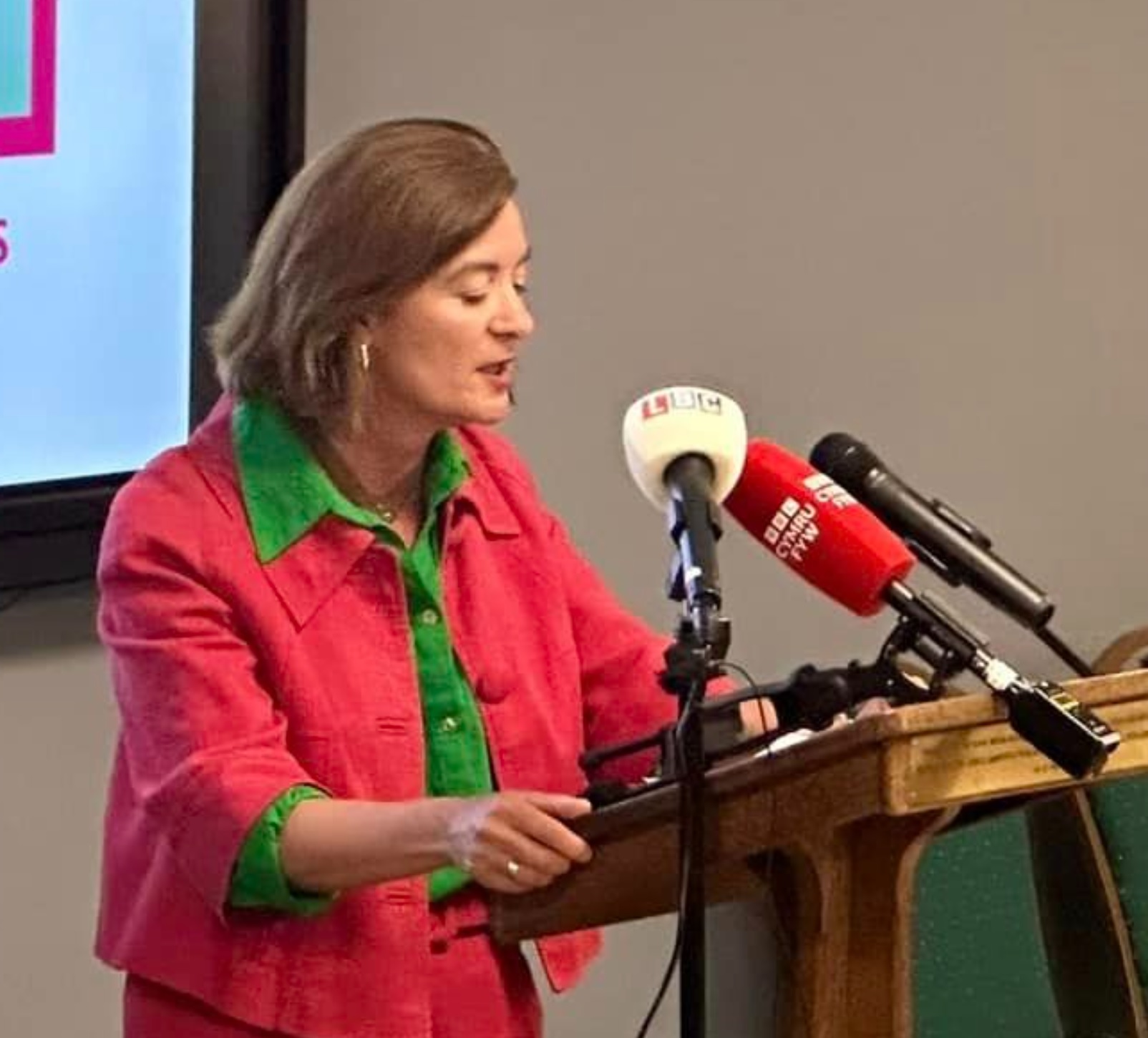Business
Language skills’ decline threatens tourism

A REPORT released by leading travel trade association UKinbound, has uncovered a growing language skills gap facing the UK tourism industry, caused by a combination of Brexit and the decline of language training in the UK.
The new research undertaken by Canterbury Christ Church University highlights the current lack of capacity in the UK’s education system to meet the shortfall in higher level language skills which are badly needed by the UK’s inbound tourism industry.
To date, tourism organisations have been largely reliant on EU nationals for their technical and ‘soft’ language skills and concerns are rising in the industry about the attrition of these employees. Approximately 130,000 EU nationals departed the UK in the year to September 2017– the highest number since 2008.
Furthermore, a sharp decline in the number of young people studying a foreign language, arising in part from changes to government policy since 2002, combined with a lack of awareness of the opportunities and career paths open to language proficient graduates in the tourism and hospitality sector, are major contributors to the widening language skills gap in the sector, at a time when access to future EU employees is uncertain.
Key findings of the research:
Of the 78 institutions offering tourism and/or hospitality undergraduate programmes in the UK, only 25 offer languages as part of their tourism/hospitality curriculum.
45 institutions offer 87 postgraduate tourism/hospitality programmes – yet only 6% of these programmes offer a language, as an optional module.
The audit identifies Institution Wide Language Provision and study abroad opportunities as alternative ways for students to add an international dimension to their studies
From a sample of 43 higher education institutions that offer a single honours modern language degree programme, only 16 mention tourism as a career prospect.
Interviews with modern language programme directors highlighted a lack of knowledge of the tourism sector and tourism specific career pathways.
The report also features an Evidence Review, drawing on data from previously conducted research and reports, creating a clearer picture regarding the diminishing supply of home-grown linguists
Pupils taking languages at A-level fell by a 1/3 in 20 years (1996-2016)
French declined from 22.7k to 8.5k
German from 9.3k to 3.4k
Spanish increased from 4.1k to 7.5k.
German is no longer a dominant language taken at A-level. French and Spanish continue to be key languages, despite the declining popularity of French.
There has been an uptake in the study of key UK inbound growth market languages; Mandarin and Arabic, but the growth of the talent pool here is slow and limited.
Social, regional and gender inequalities in the uptake of languages are striking.
The number of UK universities offering language degrees has dropped by 30% between 2000 and 2015.
Deirdre Wells OBE, chief executive officer, UKinbound said, “The UK is currently the fifth most visited country in the world and our inbound tourism industry in 2017 contributed an estimated £25 billion to the UK economy. Those working in tourism need to be able to communicate effectively with their international visitors and our tour operators in particular need employees who can communicate confidently and negotiate contracts with overseas operators and suppliers. The industry currently employs large numbers of workers from the European Union to fulfil these roles, but our members are reporting that many of their EU employees are starting to return home. They are struggling to find replacements from within the British workforce, predominantly due to their lack of advanced language skills.
“This report clearly shows that the country needs leadership from the very highest levels to address this impending language crisis, to ensure the tourism industry continues to provide world class customer service and remains competitive in the global marketplace.”
Dr Karen Thomas, Director of the Tourism and Events Research Hub, at Canterbury Christ Church University added: “The uncertainty of the Brexit negotiations appears to have pushed the tourism and hospitality sectors to a critical point, where they not only have to consider the valuable role of EU workers, but also need to evaluate the potential of home-grown talent to meet the needs of the future inbound tourism industry. This research is particularly timely given the body of evidence which has been developing about the decline of home-grown linguists and the potential this has to impact on UK productivity and competitiveness in a post-Brexit landscape. For the UK inbound tourism industry, where language skills and intercultural understanding are crucial in business and consumer-facing roles, the findings of this study raise challenging issues to be addressed by a wide range of stakeholders.”
UKinbound also recently surveyed its members regarding their need for graduates with language skills. Just 34% of members had employed graduates with language skills in the last five years, but 65% of members are now considering employing graduates with language skills in the next five years.
The report findings coincide with the launch of UKinbound’s campaign to highlight the contribution of tourism from EU countries to the UK economy, and to impress on the Government the urgency of securing either no, or minimal, barriers to inbound tourism from the EU post Brexit.
Wells added, “In 2017, two-thirds of inbound visitors came from the EU and contributed an estimated £10 billion to the UK economy. We are calling on the Government therefore to prioritise the need for minimal disruption to this flow of visitors in the Brexit negotiations. Any onerous entry requirements post Brexit will hurt the sector, the economy and cost jobs and any delay risks undermining the sectors ability to prepare for the post Brexit environment.”
The tourism industry is the UK’s third largest employer, employing 3.1 million people (over 9.6% of the UK workforce) and contributes £126 billion to the UK economy, (7.1% of GDP). The UK receives 67% of its tourists from the EU.
Business
Bid to convert office space into chocolate factory, salon and laundrette

A CALL for the retrospective conversion of office space previously connected to a Pembrokeshire car hire business to a chocolate factory, a beauty salon and a laundrette has been submitted to county planners
In an application to Pembrokeshire County Council, Mr M Williams, through agent Preseli Planning Ltd, sought retrospective permission for the subdivision of an office on land off Scotchwell Cottage, Cartlett, Haverfordwest into three units forming a chocolate manufacturing, a beauty salon, and a launderette, along with associated works.
A supporting statement said planning history at the site saw a 2018 application for the refurbishment of an existing office building and a change of use from oil depot offices to a hire car office and car/van storage yard, approved back in 2019.
For the chocolate manufacturing by ‘Pembrokeshire Chocolate company,’ as part of the latest scheme it said: “The operation comprises of manufacturing of handmade bespoke flavoured chocolate bars. Historically there was an element of counter sales but this has now ceased. The business sales comprise of online orders and the delivery of produce to local stockist. There are no counter sales from the premises.”
It said the beauty salon “offers treatments, nail services and hairdressing,” operating “on an appointment only basis, with the hairdresser element also offering a mobile service”. It said the third unit of the building functions as a commercial laundrette and ironing services known as ‘West Coast Laundry,’ which “predominantly provides services to holiday cottages, hotels and care homes”.
The statement added: “Beyond the unchanged access the site has parking provision for at least 12 vehicles and a turning area. The building now forms three units which employ two persons per unit. The 12 parking spaces, therefore, provide sufficient provision for staff.
“In terms of visiting members of the public the beauty salon operates on an appointment only basis and based on its small scale can only accommodate two customers at any one time. Therefore, ample parking provision exists to visitors.
“With regard to the chocolate manufacturing and commercial laundrette service these enterprises do not attract visitors but do attract the dropping off laundry and delivery of associated inputs. Drop off and collections associated with the laundry services tend to fall in line with holiday accommodation changeover days, for example Tuesday drop off and collections on the Thursday.
“With regard to the chocolate manufacturing ingredients are delivered by couriers and movements associated with this is also estimated at 10 vehicular movements per week.”
The application will be considered by county planners at a later date.
Business
First Minister criticised after ‘Netflix’ comment on struggling high streets

Government announces 15% support package but campaigners say costs still crushing hospitality
PUBS, cafés and restaurants across Wales will receive extra business rates relief — but ministers are facing criticism after comments suggesting people staying home watching Netflix are partly to blame for struggling high streets.
The Welsh Government has announced a 15% business rates discount for around 4,400 hospitality businesses in 2026-27, backed by up to £8 million in funding.
Announcing the package, Welsh Government Finance Secretary Mark Drakeford said: “Pubs, restaurants, cafés, bars, and live music venues are at the heart of communities across Wales. We know they are facing real pressures, from rising costs to changing consumer habits.
“This additional support will help around 4,400 businesses as they adapt to these challenges.”
The announcement came hours after Eluned Morgan suggested in Senedd discussions that changing lifestyles — including more time spent at home on streaming services — were contributing to falling footfall in town centres.
The remarks prompted political backlash.
Leader of the Welsh Liberal Democrats, Jane Dodds, said: “People are not willingly choosing Netflix over the high street. They are being forced indoors because prices keep rising and wages are not.
“Blaming people for staying at home is an insult to business owners who are working longer hours just to survive.”
Industry groups say the problem runs deeper than consumer behaviour.
The Campaign for Real Ale (CAMRA) welcomed the discount but warned it would not prevent closures.
Chris Charters, CAMRA Wales director, said: “15% off for a year is only the start. It won’t fix the unfair business rates system our pubs are being crushed by.
“Welsh publicans need a permanent solution, or doors will continue to close.”
Across Pembrokeshire, traders have repeatedly told The Herald that rising energy bills, wage pressures and rates — rather than a lack of willingness to go out — are keeping customers away.
Several town centres have seen growing numbers of empty units over the past year, with independent shops and hospitality venues reporting reduced footfall outside the main tourist season.
While ministers say the relief balances support with tight public finances, business groups are calling for wider and longer-term reform.
Further debate on rates changes is expected later this year.

Business
Pub rate relief welcomed but closures still feared

CAMRA warns one-year discount is only a sticking plaster as many Welsh locals face rising bills
A BUSINESS rates discount for Welsh pubs has been welcomed as a step in the right direction — but campaigners warn it will not be enough to stop more locals from shutting their doors.
The Campaign for Real Ale (CAMRA) says the Welsh Government’s decision to offer a 15 per cent reduction on business rates bills for the coming year will provide short-term breathing space for struggling publicans.
However, it believes the move fails to tackle deeper problems in the rating system that continue to pile pressure on community pubs across Wales, including in Pembrokeshire and Carmarthenshire.
Chris Charters, Director of CAMRA Wales, said: “Today’s announcement from the Finance Secretary that pubs will get 15% discount on their business rates bills is a welcome step.
“However, many pubs still face big hikes in their bills due to the rates revaluation which could still lead to more of our locals in Wales being forced to close for good.
“15% off for a year is only the start of supporting pubs with business rates. It won’t fix the unfair business rates system our pubs are being crushed by.”
He added: “Welsh publicans need a permanent solution, or doors will continue to close and communities will be shut away from these essential social hubs that help tackle loneliness and isolation.”
Mounting pressure on locals
Under plans announced by the Welsh Government, pubs will receive a temporary discount on their rates bills for the next financial year.
But CAMRA argues that many premises are simultaneously facing sharp increases following the latest revaluation, which recalculates rateable values based on property size and trading potential.
For some smaller, rural venues, especially those already operating on tight margins, the increases could wipe out the benefit of the relief entirely.
Publicans say they are also contending with rising energy costs, higher wages, supplier price hikes and changing customer habits since the pandemic.
In west Wales, several long-standing village pubs have either reduced their opening hours or put their businesses on the market in the past year, with landlords warning that overheads are becoming unsustainable.
Community role
Campaigners stress that the issue goes beyond beer sales.
Pubs are often described as the last remaining social spaces in small communities — hosting charity events, sports teams, live music and local groups.
In parts of rural Pembrokeshire, a pub can be the only public meeting place left after the loss of shops, banks and post offices.
CAMRA says supermarkets and online retailers enjoy structural advantages that traditional pubs cannot match, making it harder for locals to compete on price.
The organisation is now calling on ministers to introduce a permanently lower business rates multiplier for pubs, rather than relying on short-term discounts.
Long-term reform call
CAMRA wants whoever forms the next Welsh administration to commit to fundamental reform of the rating system, arguing that pubs should be recognised as community assets rather than treated like large commercial premises.
Without change, it warns, the number of closures is likely to accelerate.
Charters said: “This is about protecting the future of our locals. Once a pub shuts, it rarely reopens. We can’t afford to lose any more.”
For many communities across west Wales, the fear is simple: temporary relief may buy time — but it may not be enough to save the local.
-

 Health6 days ago
Health6 days agoConsultation reveals lack of public trust in health board
-

 Community7 days ago
Community7 days agoPembrokeshire students speak at national Holocaust Memorial Day event
-

 News1 day ago
News1 day agoPrincess of Wales visits historic Pembrokeshire woollen mill
-

 Crime5 days ago
Crime5 days agoPembroke man accused of child sex offences sent to Swansea Crown Court
-

 Education7 days ago
Education7 days ago‘Vulnerable teen’ questioned by police at Milford Haven School
-

 Education7 days ago
Education7 days agoAttendance concerns at Milford School reflect wider issue raised at the Senedd
-

 Health3 days ago
Health3 days agoDoctor struck off after sexual misconduct findings at Withybush Hospital
-

 Community6 days ago
Community6 days agoCampaign to ‘save’ River Cleddau hits over 2,200 signatures





































